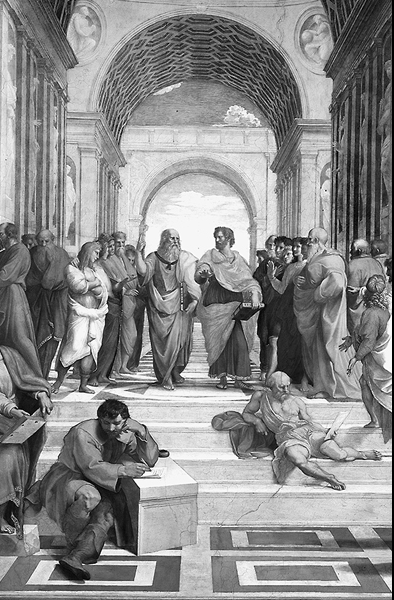In the symposia of ancient Greece, wine was revered as a gift from Dionysus, the god of wine, revelry, and madness. Yet Socrates, the inquisitive philosopher, might have asked us to consider: when does this divine elixir, meant to inspire camaraderie and joy, transform into a toxin that silences reason and fans the flames of discord?
Through dialogue, Socrates sought truth, believing conversation to be the crucible where wisdom and understanding are forged. Alcohol, however, like a cunning trickster, often subverts this process, muting reason and turning discourse into chaos. To explore its dual nature, let us blend myth and reason to examine the effects of alcohol on emotions and communication.
In Homer’s Odyssey, Odysseus instructs his crew to plug their ears to resist the Sirens’ seductive call — a temptation that would lead to ruin. Alcohol acts similarly, luring us with euphoria and the promise of ease. It numbs fear and inhibition, offering an escape from the weight of unresolved conflicts or inner turmoil. Yet, like the Sirens’ song, this temporary respite often masks peril.
When under its influence, judgment falters. Conversations that begin in joviality may spiral into misunderstanding, impulsive remarks, or anger. The clarity and restraint required for meaningful dialogue dissolve, leaving behind words we regret, their sting lingering like the aftermath of a battle.
Consider the fall of Troy, a story of cunning strategy and disastrous misjudgment. After years of conflict, the Greeks, led by Odysseus, devised a brilliant ruse: a wooden horse left outside Troy’s gates. The Trojans, believing it a gift to the gods, celebrated their supposed victory with feasting and wine.
Blinded by intoxication and overconfidence, they brought the horse within their walls, failing to recognize the hidden danger. As they slept defenseless, Greek soldiers emerged, opening the gates to the rest of the army. What began as triumph ended in catastrophe.
Alcohol, like the wooden horse, carries hidden risks. It dulls vigilance and distorts perception, leaving us vulnerable to dangers we might otherwise avoid. Celebration, when unchecked, can erode the very defenses that protect us.
The Labyrinth of Emotions
In the myth of the Minotaur, Theseus descends into a labyrinth to confront a beast. Alcohol creates a similar maze within the mind, magnifying and distorting emotions.
1. The Bacchic Frenzy: Like the frenzied followers of Dionysus, anger and frustration can emerge unchecked under the sway of alcohol. Conversations intended to resolve conflict may escalate into fiery disputes.
2. The Lethe Effect: Named for the river of forgetfulness in Hades, alcohol impairs memory and focus. In dialogue, this manifests as missed points, muddled responses, and disengagement.
3. Eros and Eris: Alcohol lowers inhibitions, leading to extremes—expressions of love (Eros) or discord (Eris). Affection may twist into jealousy, and minor disagreements may ignite full-blown arguments.
Socratic Remedies for Constructive Dialogue
1. Sobriety as the Golden Mean: Aristotle spoke of the Golden Mean—the balance between extremes. Approach meaningful conversations with clarity and temperance, avoiding the destabilizing effects of intoxication.
2. Plan Your Labors: Like Heracles, prepare for your challenges — schedule conversations when both parties are clear-headed, ensuring mutual respect and understanding.
3. Seek Ariadne’s Thread: If dialogue becomes a labyrinth, find the thread—through reflection, third-party mediation, or professional guidance—to navigate
Socrates might ask: must all fear be overcome, or does it serve a purpose? Fear, like the gods of Olympus, has a dual nature. At its core, it is a self-preservation instinct, urging us to avoid overwhelming dangers. Yet, under the influence of alcohol, this protective emotion is dulled, replaced by inflated confidence and recklessness.
There are moments when retreat is not cowardice but prudence. Armed with wit and strategy, Perseus did not confront Medusa directly but used a mirror to avoid her deadly gaze. Similarly, fleeing from a conflict when the stakes are high, or the danger too great is an act of wisdom.
Alcohol can act as a catalyst, providing a small push to confront fears. But excessive consumption tips the scales, numbing our fears and the dexterity and clarity needed to navigate risky situations. What begins as courage often devolves into recklessness, like a drunken Achilles charging into battle without his armor.
Socrates would remind us that courage is not the absence of fear but the ability to act wisely in its presence. To flee when necessary honors the wisdom of Athena, the goddess of strategy and reason. To fight without thought, intoxicated by the false courage of substances, is to succumb to the chaos of Ares, the god of war.
Dionysus invites us to celebrate life, but Socrates urges temperance and reflection. When we balance these two forces, we honor both the joys of the moment and the sanctity of reason. To drink is not a sin, but to drink without thought is to lose oneself to the chaos of the Bacchic revel. To converse is divine, but to do so under the influence risks trading wisdom for folly. Let us, then, choose wisely, weaving the threads of myth and philosophy into lives marked by clarity, harmony, and truth.


